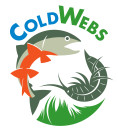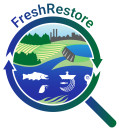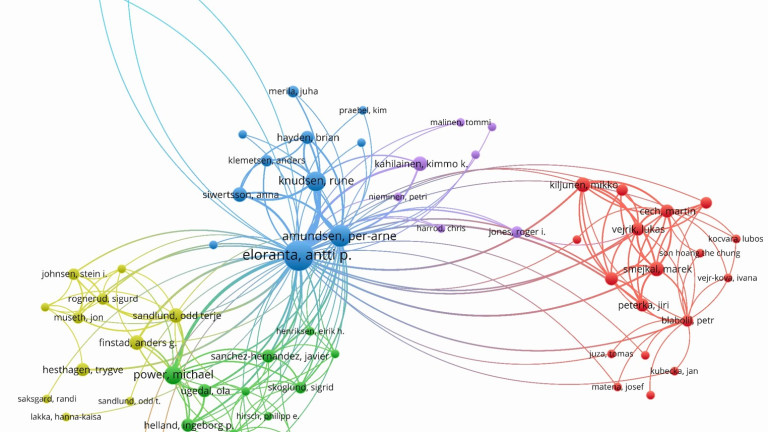ColdWebs: Food webs in cold freshwaters

Overview
Research group description
Our research focuses on food webs and salmonid fish populations in subarctic and alpine lakes across Fennoscandia. We use stable isotope analyses and space-for-time modelling to study how e.g. lake morphometry, productivity, climatic conditions, community composition and human impacts, such as species' introductions and hydropower-induced water level regulation, affect native fish species and the structure and function of food webs in freshwater ecosystems. Our research topics also include environmental issues associated with migration barriers in river networks (e.g. culverts and old dams) and impacts of invasive Pacific pink salmon on coupling between marine, freshwater and terrestrial ecosystems.
Our new paper on Arctic freshwater biodiversity is now published in Ambio!
We pulled together insights from a big international team to map out 77 key research questions - with 17 of them flagged as the most urgent for understanding how Arctic lakes and rivers are changing. The main takeaways:
• Climate change is the major driver shaping Arctic freshwater ecosystems across pretty much all themes we looked at.
• There’s a real need for long-term, coordinated monitoring across Arctic countries to keep track of what’s happening.
• And to tackle the many knowledge gaps, stronger circumpolar collaboration is going to be essential.
Culp J.M., Power M., Christoffersen K.S., Goedkoop W., Kahilainen K.K., Rautio M., Chaguaceda F., Hébert M.P., Moedt S.M., Antoniades D., Belle S., Bolnick D., Bouchard F., Brittain J.E., Byström P., Chavarie L., Couture R.-M., Derry A.M., Eloranta A.P., Frainer A., Girard C., Grosbois G., Hessen D.O., Hogg I., Jungblut A.D., Lakka H.-K., Lam J., Lau D.C.P., Leblanc C.A., Lento J., MacIntyre S., Marsh P., Martyniuk M.A.C., Milner A., Musetta-Lambert J., Mustonen T., Nowosad D., Saros J.E., Schartau A.K., Smol J.P., Soininen J., Svenning M.-A., Tape K.D. & Wrona F.J. 2026. Freshwater biodiversity in a rapidly changing Arctic: An expert horizon scan of key research questions. Ambio, https://doi.org/10.1007/s13280-025-02331-5
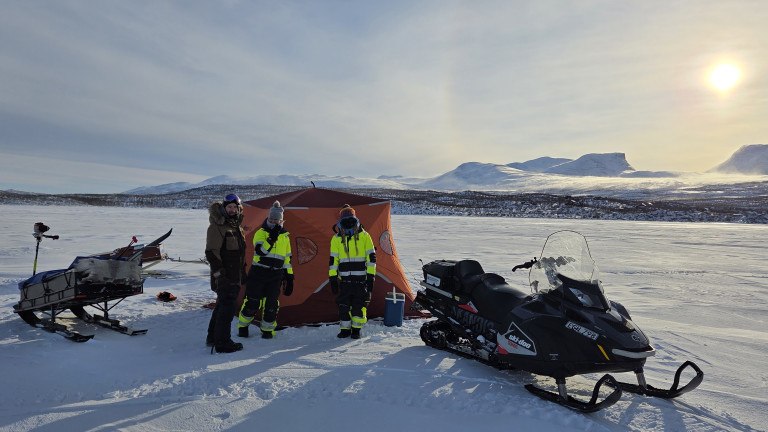
New PhD thesis on food webs and salmonids in cold-water lakes
Congratulations Henna Kangosjärvi for completing the PhD project! 🥳
Henna's PhD thesis examined how environmental factors and the structure of fish communities influence food webs in high-latitude lakes and the trophic niche of salmonid fishes, namely Arctic charr (Salvelinus alpinus) and brown trout (Salmo trutta). The results show that interactions between fish species and differences in body size have a greater effect on the feeding behaviour of salmonids than lake surface area or air temperature.
You can find the press release and a link to the PhD thesis through this link.
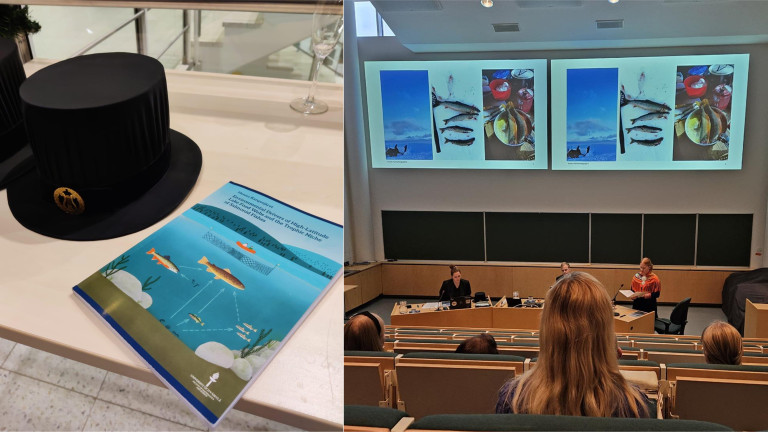
New paper on interactions between invasive Eurasian minnow and native brown trout in Abisko
Arctic freshwater ecosystems are increasingly threatened by invasive species, such as the Eurasian minnow which has been spreading into lakes previously dominated by salmonids in Norway and Sweden. In order to develop targeted conservation and management, we need to know the impact invasive species have on the native fish species and ecosystems.
In summer 2023, Henna Kangosjärvi and Kaisa Anttila sampled lakes in Abisko region of northern Sweden, where minnows have recently invaded small lakes that used to host only brown trout. Based on stable isotope analyses, small trout and minnows fed on similar dietary items. However, despite potential resource competition at early life stages, there were no clear negative impacts of minnow on native trout. In fact, trout grew faster in lakes with minnows, likely due to their flexible resource use and occasional piscivory on minnows.
You can read the full story in our newly published paper🐟
Kangosjärvi H., Byström P., Anttila K. & Eloranta A.P. 2026. Invasive Eurasian minnow alters the trophic niche and growth of brown trout in high-latitude lakes. Ecology of Freshwater Fish 35: e70031. https://doi.org/10.1111/eff.70031
Workshop on environmental impacts in hydropower reservoirs
We had a great workshop at the shore of lake Savalen to discuss about ongoing projects, knowledge gaps, experiences and needs of different sectors (industry, environmental managers and researchers) aiming for sustainable hydropower operations and development in Norway and Sweden. You can read more about the ongoing projects through these links:
- Functional fish habitats in hydropower reservoirs
- SusHydro - Sustainable hydropower
- Store2Hydro
- FÅK återbesökt – en syntes om FiskevÅrd i reglerade sjöar och Kraftverksmagasin
- Environmental design for rehabilitation of regulated lakes and reservoirs
- Återskapande av grunda sjöbottnar – en ny chans för biodiversitet och hållbar energiproduktion i regleringsmagasin?
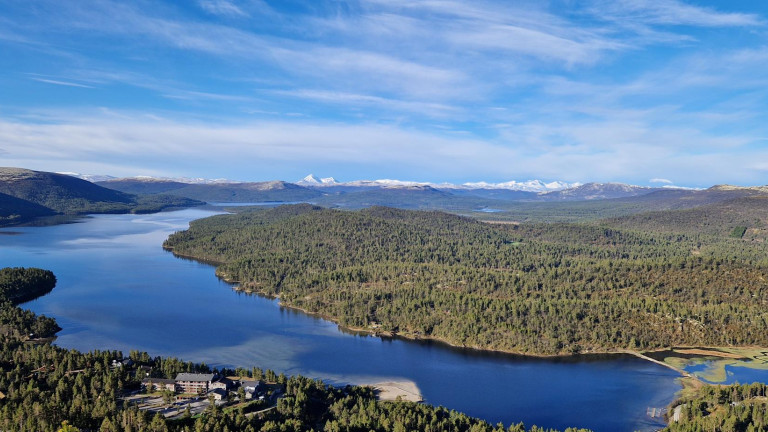
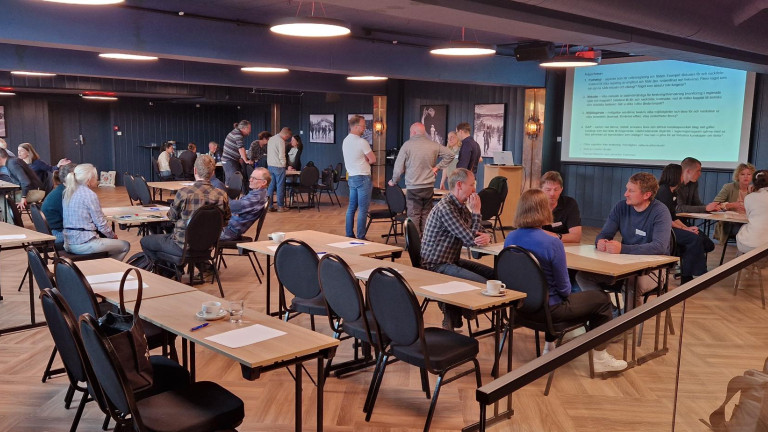
New publication on consumer allochthony in boreal lakes
Congratulations Ossi Keva & co for the new paper published in Nature Communications!
Land use activities, such as forestry and agriculture, can shape the structure and functioning of freshwater food webs. Using stable hydrogen isotope data from 35 Finnish boreal lakes, our study demonstrates how different consumer groups shift from terrestrial to aquatic energy sources along a gradient from brown-water forest lakes to more eutrophic lakes in agricultural landscapes. This shift from allochthonous to autochthonous energy sources was most evident in benthic invertebrates and benthivorous fish species and fish life stages than in pelagic planktivorous consumers. For more information, please have a look at the open access paper or JYU News press release!
Keva O., Cobain M.R.D., Eloranta A.P., Hämäläinen H., Kiljunen M. & Jones R.I. 2025. The role of land use in terrestrial support of boreal lake food webs. Nature Communications 16: 3572. https://doi.org/10.1038/s41467-025-58505-y
New review paper on amino acid carbon stable isotopes
Matthew Cobain and coauthors have published a very interesting and topical review paper introducing the various applications and challenges related to the use of amino acid carbon stable isotopes for tracing the origin and use of basal resources in food webs!
, 2025) The Power and Pitfalls of Amino Acid Carbon Stable Isotopes for Tracing Origin and Use of Basal Resources in Food Webs. Ecological Monographs 95: e1647. https://doi.org/10.1002/ecm.1647
Arctic Circle Assembly in Reykjavik, 19-21 October 2023
Henna Kangosjärvi joined the Arctic Circle Assembly in Reykjavik, Iceland, including the My Northern Project science popularization contest. The audience selected her presentation as their favorite - congratulations Henna! :) You can read more about the event and Henna's talk here: https://www.uarctic.org/news/2024/11/exploring-the-hidden-complexity-of…
Newsletter article on pink salmon impacts
Check out the new Hakai newsletter introducing some of our collaborations on environmental impacts of invasive pink salmon in Norwegian rivers, with MSc student Lauri Ryynänen helping out in electrofishing at Grense Jakobselva :) https://hakaimagazine.com/features/where-the-rivers-run-pink/
New review paper on food webs in high-latitude lakes
Our new review paper "Environmental drivers of food webs in charr- and trout-dominated high-latitude lakes" is now published in Fish and Fisheries journal! Please follow this link to read the paper: https://doi.org/10.1111/faf.12851 Congratulations to Henna Kangosjärvi for getting the first paper published in a highly distinguished journal - great job!!
ColdWebs mid-term project meeting in Kilpisjärvi
In 7-9 March 2024, we had a nice ColdWebs mid-term project meeting in cold but beautiful Kilpisjärvi, close to the border of Finland, Sweden and Norway. In addition to fruitful discussions about the project outcomes, next steps and future projects, we went for a small cross-country skiing or snowshoeing trip on the lake. The wind was terribly cold, but the atmosphere was really warm, especially in the sauna! :)
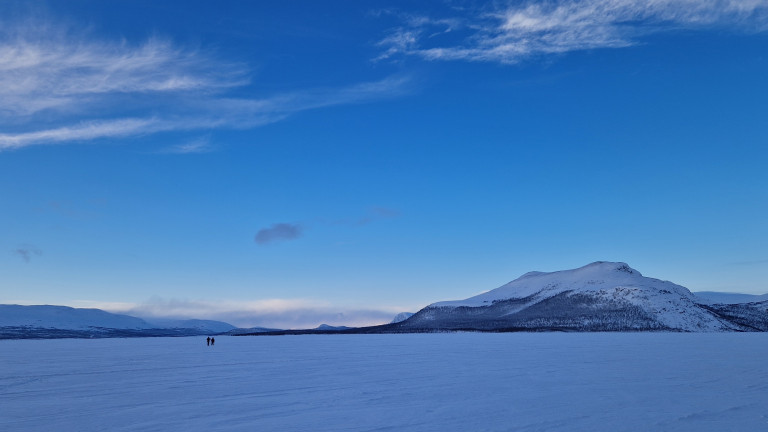
Popular-science article on hydropower impacts
Henna Kangosjärvi has written an interesting popular-science article about environmental problems associated with water level regulation in hydropower reservoirs. The article can be found in Suomen Luonto #MUUTOSpages.
Fieldwork in Abisko, August 2023
In August 2023, Henna Kangosjärvi, Kaisa Anttila, and Antti Eloranta spent two intensive weeks sampling five subarctic lakes in the Abisko region of northern Sweden. The field trip involved close collaboration with the Swedish Climate Impacts Research Centre at the Abisko research station. The main aim was to investigate how invasive Eurasian minnow (Phoxinus phoxinus) may affect the trophic niche and life-history traits of native brown trout (Salmo trutta) in subarctic lakes. In recent years, minnows have been recorded in several shallow, oligotrophic salmonid lakes within the catchment of lake Torneträsk. Although minnows are native to Torneträsk, many of the surrounding smaller lakes have historically supported allopatric salmonid populations, raising concerns about the potential impacts of minnow on native biota and ecosystem functioning.
Despite some long days the sampling went well and in a randomized manner as demanded for a well-planned and well-conducted scientific research 😊 The team “Randommaissit” was especially happy about their new bright red friend “Maissi”, a 6 kg Forager packraft that was just large enough to carry two persons and all the gear and samples. The collected data will be published as part of the MSc thesis of Kaisa Anttila, and the PhD thesis of Henna Kangosjärvi.
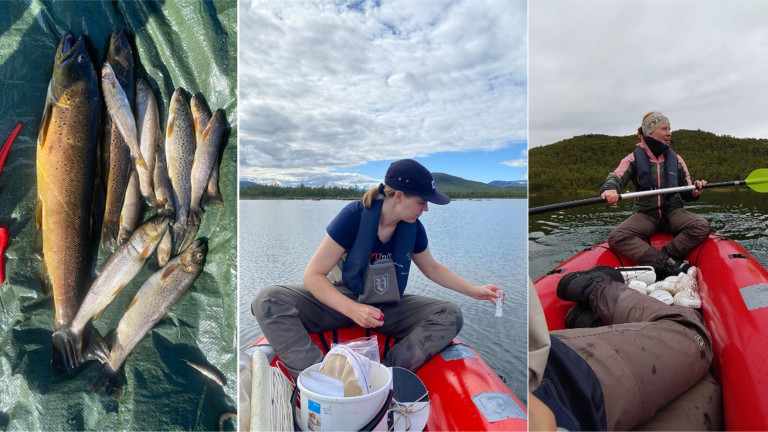
International Charr Symposium in Nikko, Japan
The 10th International Charr Symposium was organized in Nikko, Japan, from 25th May to 2nd June 2023. The meeting gathered nearly 100 scientists working on Salvelinus sp. salmonid species and was filled with interesting presentations, fruitful discussions and amazing adventures to the stunning Japanese landscapes and culinary master pieces :) This was the first scientific conference and oral presentation for the doctoral researcher Henna Kangosjärvi and the 4th (but definitely not the last!!) Charr Symposium for the group leader Antti Eloranta.
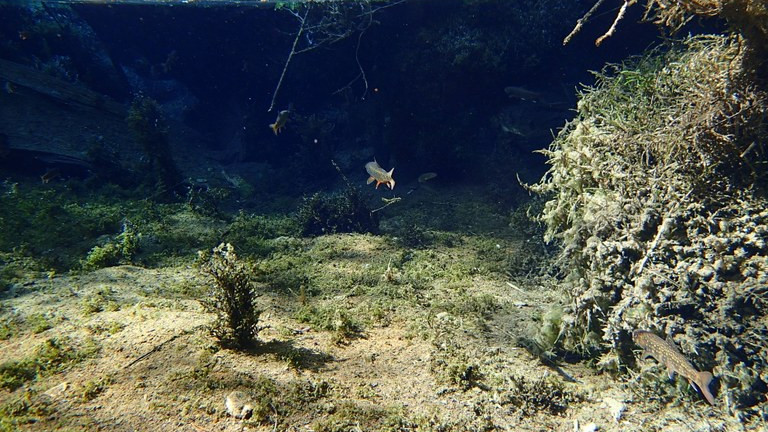
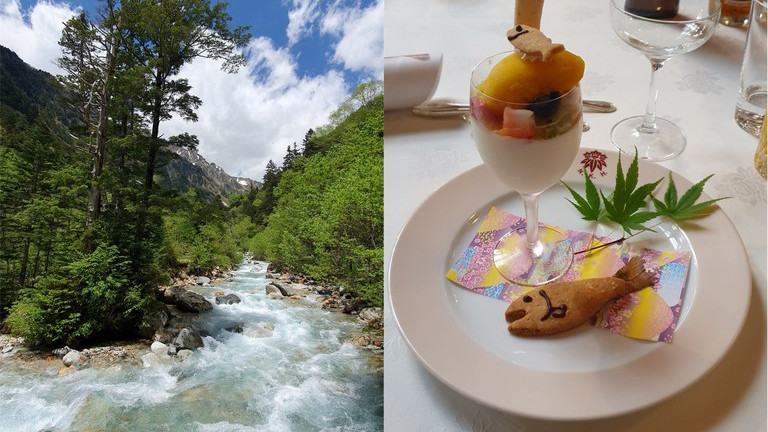
Workshop on within-species diversity in Hólar, Iceland
Skúli Skúlason, Bjarni Kristjánsson and others organized a very interesting workshop in Hólar, Iceland, in 16-19 January 2023. The "Within-species Diversity Workshop" was funded by the International Arctic Science Committee and aimed to 1) discuss existing research and policy approaches to intraspecific variation; 2) identify knowledge gaps and how transdisciplinary approaches and data-sharing could aid in addressing these; 3) brainstorm methods for mapping and monitoring of intraspecific variation for research, policymaking, and public education; and 4) devise a plan to gather and collate local knowledge of diversity within species (i.e. indigenous knowledge, local/traditional awareness of within-species differences that have not yet been recorded in Western scientific literature). We really enjoyed the fruitful discussions and networking as well as the hospitality, food and beautiful scenery in Iceland! :)
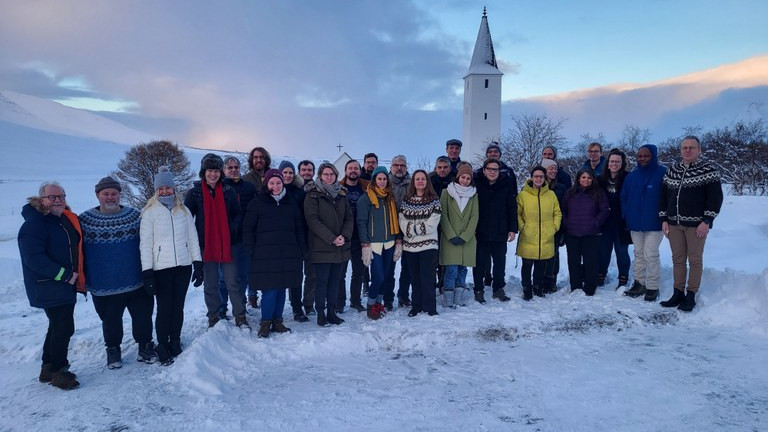
ColdWebs kick-off meeting in Konnevesi
ColdWebs project partners joined the first physical meeting in Konnevesi Research Station in early November 2022. Great company and discussions about the project achievements and future activities! :)
People from the left: Matthew Cobain (JYU), Jan Karlsson and Pär Byström (Umeå University), Hanne Krogstie and Anders Finstad (NTNU), Antti Eloranta and Katja Räsänen (JYU), Per-Arne Amundsen (UiT The Arctic University of Norway), Michael Power (University of Waterloo), Roger Jones (JYU), Jaakko Erkinaro (Luke), Bjarni Kristjánsson (Holar University), and Ossi Keva (JYU).
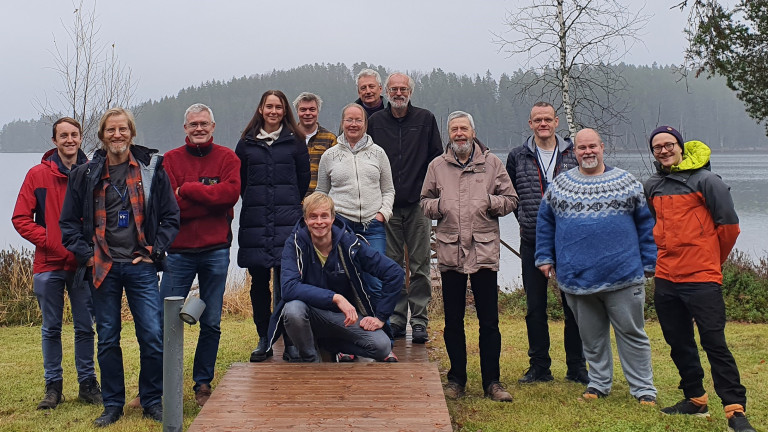
Field work in northern Finland
Field work in six subarctic lakes in the northwestern tip of Finland was completed successfully by Henna Kangosjärvi, Jenni Takalo and Hanna-Kaisa Lakka despite of various challenges with weather conditions, sicknesses etc. Now time for some lab work to get new interesting data from these fascinating cold, ultraoligotrophic lakes and their Arctic charr populations :)
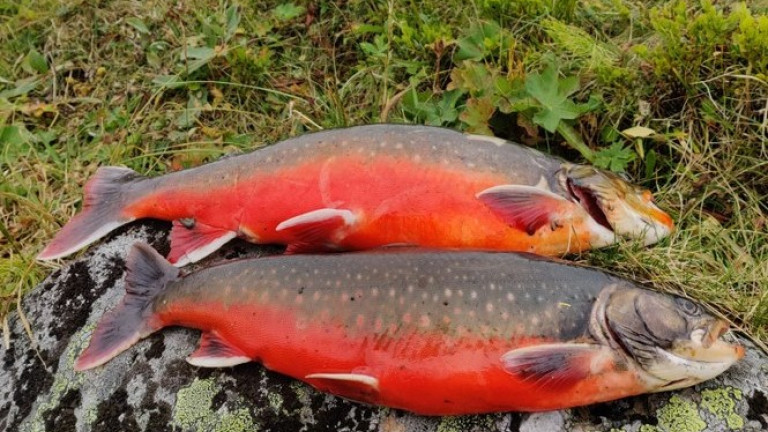
FreshRestore project kick-off meeting in Spain
The physical kick-off meeting of FreshRestore project was arranged in Spain in 9-12 May 2022 and included great discussions, excellent food and wine, and an amazing visit to one of the three Spanish case study lakes, Lake Sanabria.
People from the left: Matthew Cobain, Berit Hasler, Stefan Blumentrath, Francesca Pilotto, Pär Byström, Kim Magnus Bærum, Antti Eloranta and Javier Sánchez-Hernández
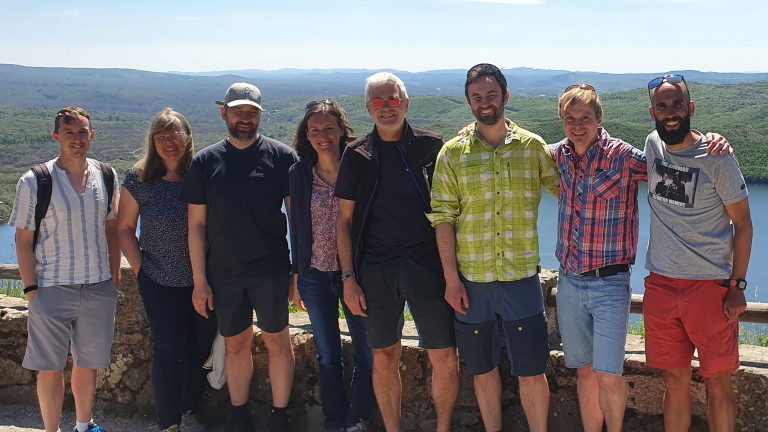
FunkyFish project got funded!
Functional fish habitats in hydropower reservoirs (FunkyFish) project got funding from the Research Council of Norway! Looking forward to start this fascinating project in 2023 together with Ingeborg Helland, Michael Power and others!
New PhD thesis on rotenone treatment impacts
Dr. Gaute Kjærstad did a great job defending his PhD thesis about rotenone treatment impacts on freshwater invertebrates. Congratulations! 🥳



